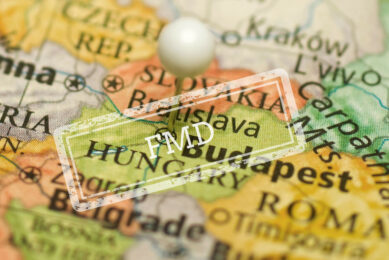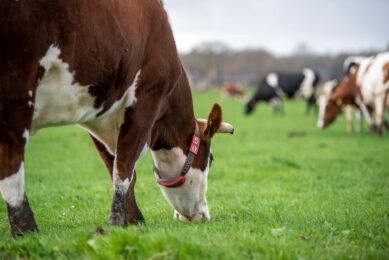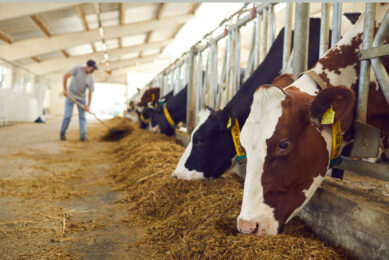What’s the impact of the European Green Deal on dairy?

A few days before the European Parliament election on 6-9 June 2024, farmers from the Netherlands, Belgium, Poland and Germany drove hundreds of tractors into Brussels to protest against EU green policies that organisers said undermine the competitiveness of European farmers, according to a Reuters report.
The protesters stated that they want Europe to “put away the Green Deal” as it is “not realistic”. One of the farmers told the news agency at the protest in Laeken in northern Brussels: “We came from Poland because we know that the source of our problem is in Brussels. Because we want to change, deeply change, the Green Deal.”
It is the latest in a months-long wave of farmers’ protests across Europe, where agricultural workers have denounced low food prices, excessive regulations and free-trade deals that they say leave them struggling to compete with cheap imports. The protest was organised by the Dutch lobby group Farmers Defence Force and supported by right-wing and far-right groups.
“We want Europe to put the Green Deal away because it’s not realistic,” said Bart Dickens, president of Farmers Defence Force’s Belgian branch.
In Poland, farmers blocked one border crossing with Ukraine, in what police said was a show of solidarity with protests in Brussels. “This protest will last 3 days. Trucks travelling from Ukraine are blocked and 12 trucks are allowed to leave Poland between 8 am and 8 pm,” said police spokesperson Malgorzata Pawlowska.
However, there are mixed opinions across the different farmer lobby groups. Europe’s biggest farming lobby Copa Cogeca, and farming association La Via Campesina, each told Reuters their members would not participate. However, in their recent report, the La Via Campesina said the demands of farmers are clear that there should be a guarantee for fair prices that cover production costs and decent working conditions through market regulation and European public policies that support farmers and agricultural workers.
Impact of the EU’s Green Deal on the livestock sector
According to the European Dairy Association, the European Green Deal is “the flagship initiative that will transform Europe and shape the future of our continent and of our industry, gives us the occasion to highlight the positive role of dairy for society, nutrition, environment and in an economic dimension within the new framework.” In brief, the European Green Deal aims to achieve a fair, healthy, and environmentally friendly food system in the European Union.
In a policy paper published by Wageningen Economic Research, ‘The Green Deal: An assessment of impacts of the Farm to Fork and Biodiversity Strategies on the EU livestock sector’, the researchers concluded that achieving the EU’s Green Deal objectives may lead to a reduction of livestock production by 10-15%. They said the short-term impacts on farm net income are diverse (gainers as well as losers) and influenced by various factors such as prices, region-specific impact of environmental constraints, changes in CAP direct payments, development of costs and subsidies compensating for costs associated with the adoption of specific measures.
In another recent research published in Communications Earth and Environment journal, researchers assessed the market and non-market impacts of the 3 main levers of the Green Deal targeting the food chain. They agreed with their statement that “The European Green Deal improves the sustainability of food systems but has uneven economic impacts on consumers and farmers”. They said consumers win economically thanks to lower food expenditures, but livestock producers lose through quantity and price declines. “Impacts on revenues of food/feed field crop producers are positive only when the increase in food consumption products outweighs the decrease in feed consumption,” they said.
Join 13,000+ subscribers
Subscribe to our newsletter to stay updated about all the need-to-know content in the dairy sector, two times a week.










